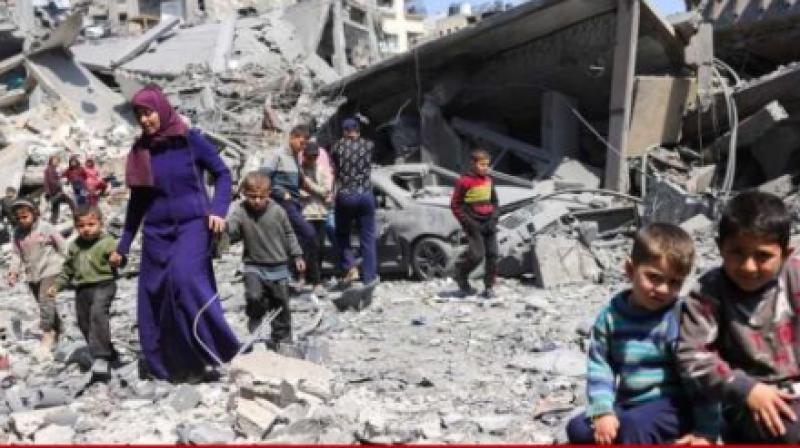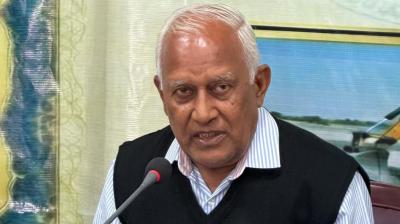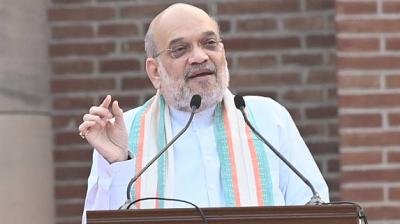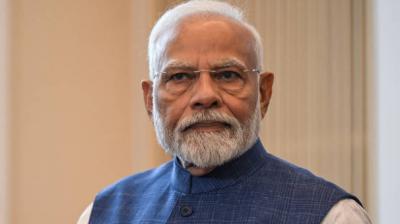
The European Union, the UK, and Canada have strongly condemned Netanyahu’s use of food and humanitarian aid as weapons of war.
Editorial: When will the Israeli onslaught in Gaza stop?
The massacre of humanity in Gaza continues unabated. Every day, around a hundred to a hundred and twenty people are being killed—many of them women and children. Over the past month, the Israeli government has not claimed to have killed any significant Hamas leaders through its daily bombings, except for one. Despite this failure, relentless bombings continue to rain down on refugee camps and hospitals. Not a single hospital in the entire Gaza Strip remains intact. Israel’s claims that Hamas operatives are hiding in hospital basements or using hospitals as weapons depots have consistently proven false.
More than 52,000 Palestinians in Gaza have lost their lives due to Israeli military operations. An estimated 22,000 more have died from starvation and disease. It is believed that one in every five residents of Gaza has been wounded in the war. Over 80% of homes have been destroyed. Less than 50% of buildings are still standing, and most of those are partially damaged. Despite the devastation caused by Israeli airstrikes since the war began on October 7, 2023, Hamas has shown no willingness to surrender.
Palestinians, who witness death daily, now desperately seek a ceasefire. Anti-Hamas protests among Palestinians have become a routine occurrence. Yet, Israeli Prime Minister Benjamin Netanyahu remains unsatisfied. He seems determined to make the entire Gaza Strip an Israeli territory. His singular goal appears to be a “Palestinian-free Gaza,” and in pursuit of that aim, the daily killing of 30–40 Palestinian children does not seem to trouble him.
This is why food and medical aid are not being allowed into Palestinian refugee camps or hospitals. Netanyahu’s actions reflect a mindset of indifference—"Let them die, who cares."
Qatar, which has played a key role in mediations between Israel and Hamas, has called on the international community to collectively oppose Israel's inhumane behavior. Qatar also asserts that Israel’s genocidal policies will not succeed and are instead breeding a new generation of fierce opposition. Even within Israel, opposition to Netanyahu is mounting.
On one hand, the families of the 90–92 Israeli hostages held by Hamas are demanding their immediate release at any cost. On the other, many Israelis see their army’s indiscriminate killing of the helpless and the innocent as a stain on Jewish identity. Critics claim Netanyahu is prolonging the war simply to extend his tenure as Prime Minister.
No one seems willing to stand up for the Palestinians. They’ve seen for themselves how little concern the Arab world has for their suffering. Arab leaders continue to shed crocodile tears but refuse to take any real action. Their involvement has been limited to appeals to Donald Trump to rein in Netanyahu—a hope that has already faded. Trump, who initially claimed he could end the war in 24 hours, no longer even mentions Gaza.
Despite this bleak scenario, some European nations have begun to push back. The European Union, the UK, and Canada have strongly condemned Netanyahu’s use of food and humanitarian aid as weapons of war. In protest against Israel’s 80-day blockade on food and medical aid to Palestinians, these nations have threatened to reduce trade with Israel and impose extraordinary tariffs on its exports. They have also announced plans to halt the export of small arms and ammunition to Israel.
It is true that as long as Netanyahu enjoys the support of the powerful Jewish lobby in the United States, he will likely continue to ignore European pressure. However, he is increasingly concerned about these nations expanding their influence in Syria and Lebanon. He now realizes that he no longer enjoys unchecked freedom to act in at least three neighboring countries. This growing pressure may eventually force him to soften his stance.














